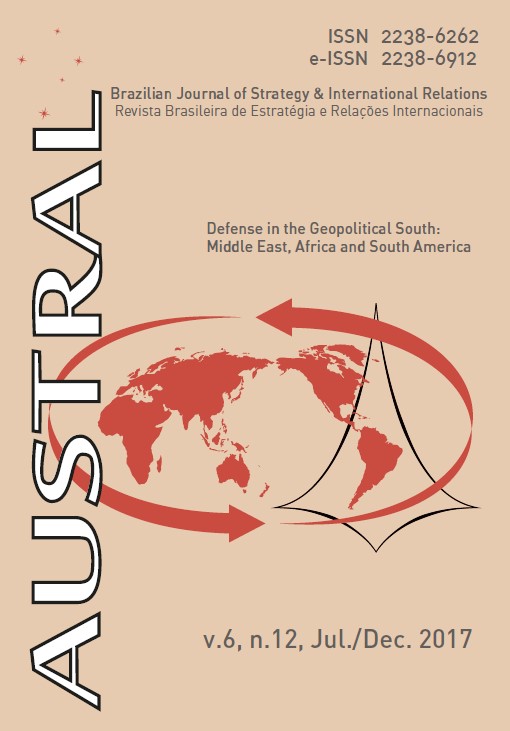DEVELOPMENT AND SECURITY IN BRAZILIAN FOREIGN POLICY: THEORETICAL AND EMPIRICAL CONSIDERATIONS OF LULA´S AND DILMA´S GOVERNMENTS (2003-2016)
DOI:
https://doi.org/10.22456/2238-6912.75389Keywords:
Brazilian Foreign Policy, Development, Human Security.Abstract
Since the mid-twentieth century, Brazilian foreign policy has been gradually inserting into its agenda the concept of development (alternating between an orthodox and a heterodox view) as a fundamental motto of action. Other sub-areas of Brazilian diplomacy have become conditional on development, especially international security. Presenting social aspects of development and Human Security as intertwined since the 1990s in Brazil, the article analyzes theoretically and empirically the foreign policy the governments of Lula da Silva (2003-2010) and Dilma Rousseff (2011-2016). Taking as its main goal to verify the validity of such hypothesis, the article concludes that this conditionality is coherent with Brazilian socioeconomic and geopolitical reality, but that its proximity to Human Security must be taken with caution.


